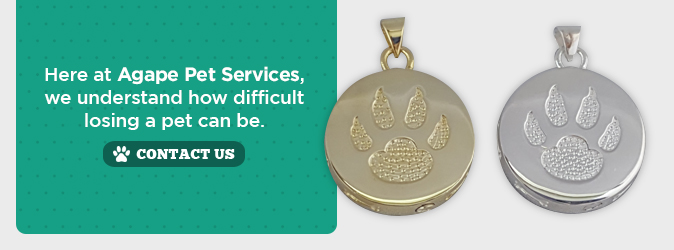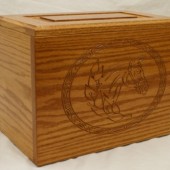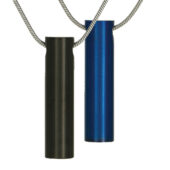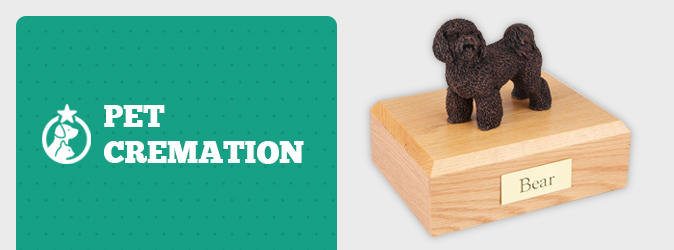
Whether it’s your cat, dog, horse or another furry friend, seeing a faithful pet approach the end of their days with you can be challenging. No one wants to say goodbye to a companion who is a fun, bright and meaningful part of their life. Research confirms that most pet owners consider their pet their best friend. When it comes time to say goodbye to your best friend, you can communicate your love and appreciation in the way you memorialize them.
One way to honor your pet’s memory is by having them cremated. This article will discuss pet cremation and answer some common questions so you can consider whether pet cremation is the right option for you.
How Does Pet Cremation Work?
When your pet is living out their final days, and especially if they pass away suddenly, this is not the ideal time to make decisions about what comes next. It’s an understandably emotional time, and most people are unfamiliar with the options available to them.
If possible, it’s better to plan ahead for your pet’s eventual passing. Even if your pet is in perfect health, it’s wise to make a plan. Making plans now for what you’ll do when your pet passes ensures that, when the time comes, you can grieve in peace and not have to worry yourself with figuring out your options. If you’re not sure what to do and leave it up to your veterinarian, you may not like the way they take care of your pet’s remains.
There are three main pet afterlife options to consider:
- Internment or burial
- Communal cremation
- Private cremation
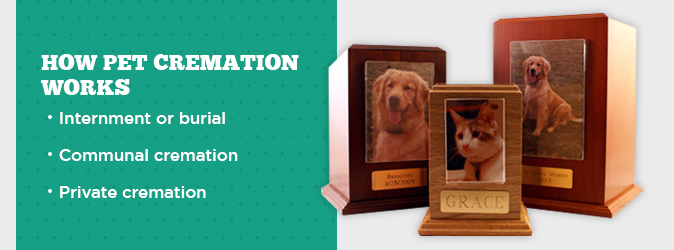
Cremation tends to be a better option for many people due to some of the possible problems with internment. In many municipalities, burying a pet’s noncremated remains is prohibited. Even if the city allows it, some people may be concerned about the possibility of moving in the future and leaving their pet’s final resting place behind.
So, how does pet cremation work? Cremation thermally reduces an animal’s remains, resulting in powdery cremains. With a communal cremation, your pet will be cremated with other pets, and you won’t receive any cremains. This is often the default if you tell your veterinarian that you want your pet cremated unless you request a private cremation. With a private cremation, your pet is cremated alone, and you can keep the cremains.
Some pet owners choose to bury the cremains in a box or urn or keep them somewhere in their home to memorialize their lost friend. Others may scatter their pet’s cremains in a place with special meaning for them and their pet.
Questions You Should Ask About Pet Cremation
One of the best ways to address your concerns or confusions surrounding pet cremation is simply by asking. Researching online is a great start, but it’s also helpful to get more details that apply to your particular situation and location, first from your veterinarian and then from your pet cremation provider.
Questions to Ask Your Vet:
- Will you coordinate the cremation?
- Do you recommend certain providers?
- Will it be a private, partitioned or communal cremation?
- Have you ever visited the cremation company to see how pets are treated?
Questions to Ask Your Pet Cremation Company:
- Can I watch the procedure?
- How and when will I receive my pet’s cremains?
- How do you identify pets so that I get my pet’s cremains?
- What keepsakes do you offer?
The answers to these questions can help you make an informed decision about which pet cremation provider to partner with and how best you can memorialize your pet.
The Process of Cremating a Pet
Let’s take a moment to discuss what this step-by-step process looks like, both for cats and dogs, and for horses.
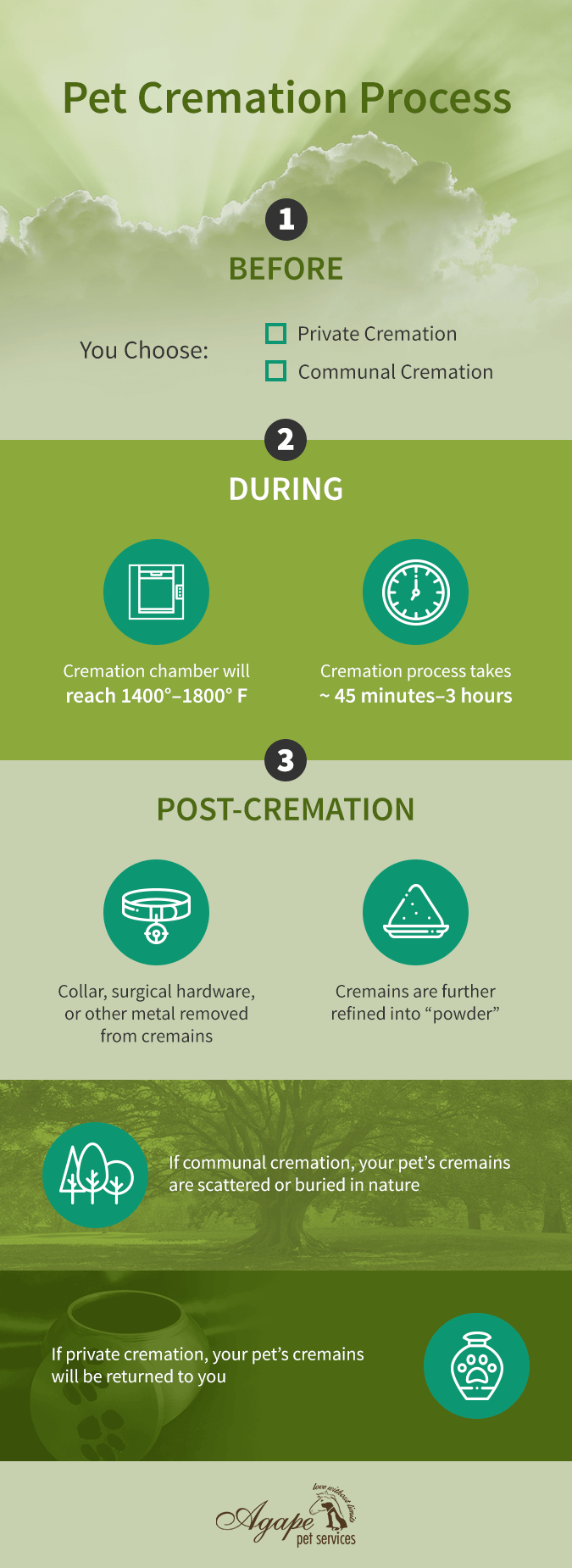
Dog and Cat Cremation Process
Dogs and cats are the most common animals kept as pets in America and, therefore, account for the majority of pet cremations. If you want your dog or cat’s aftercare to include cremation, then it’s helpful to know what the process looks like before, during and after the cremation.
- Before CremationIf possible, it’s best to have a plan for your pet’s end of life care before your pet passes. Talk to your vet early about options based on your pet’s current condition as well as your needs.If your pet has already passed, what happens before cremation depends on where your pet is when he/she has passed away.If your pet is/was euthanized at the vet’s office, most likely your vet will ask you whether you would like your pet to be cremated. Make sure you let the vet know if you’ll want your pet’s remains returned to you, as that will determine if you’d like a private or communal cremation. You’ll want to find out if your vet’s office partners with a specific pet cremation service.After you’ve discussed the options with your vet, you can return home. Here, you may wonder how your pet’s remains are being handled. In most cases, a veterinary assistant will encase the pet’s body in a bag and place it in a refrigerator or freezer. In some cases, the pet’s body may remain there for several days until a truck comes to collect pet remains to take them to the crematorium.If your pet dies at home, you have a couple of options. You can call your vet to see if they know of any pickup services you can call to come to your home and take the pet away. Some cremation companies will offer this option so that you don’t have to do this on your own. Otherwise, you may be able to take your pet’s remains to the cremation location, or to the vet’s office where they will hold it for you until the cremation service arrives.
- During Cremation
What happens during the cremation process is fairly standardized, though some crematoriums may treat your pet with more respect than others. Depending on whether your pet receives a private, partitioned or communal cremation, they will be placed in a cremation chamber either alone or with other pets. Once in the chamber, the temperature is raised to anywhere from 1400 to 1800 degrees Fahrenheit. As the remains are incinerated, they are reduced to dry bones and dust.If there are any bits of metal left from things like surgical pins or a collar, the cremator either uses a magnet or visually inspects the remains to remove them. Once they’ve been inspected, the cremains are crushed down to a more powdery consistency.For private cremation, you may choose to be present for the whole process. Not all crematoriums are able to offer this option, but know that this is something you could look for if you’d like. Even if you don’t want to watch the process, this level of transparency with the crematorium can be a comfort. - After Cremation
What happens to your pet’s cremains after depends on whether you chose a private or communal cremation. For a communal cremation, your pet’s cremains will be co-mingled with those of other beloved pets. At Agape, we scatter or bury these cremains on a designated farm or spot in the woods as a final resting place.For private cremations, once the cremains are ready, the cremation company may put them in a receptacle such as a plastic bag, tin or cardboard box. The receptacle should be labeled with either your or your pet’s name. You will likely receive your pet’s cremains within a day or two, or if you are present for the cremation, promptly following it. You can then decide what you want to do with the cremains.
What to do with your pets’ cremains (ashes):
- Transfer the cremains to an urn
- Place the cremains in a decorative box
- Have custom cremation jewelry created from the ashes
- Create a piece of art glass from ashes
- Scatter the cremains outside
- Bury the cremains outside in your yard
- Store the cremains in a columbarium at a pet cemetery
In some cases, you may be able to select an urn or box from the cremating company and have your pet’s cremains returned to you already in the urn or decorative container.
You can also choose to purchase a keepsake to help memorialize your beloved pet. Keep in mind that some keepsakes like a clay paw print will need to be made before your pet is cremated.
Horse Cremation Process
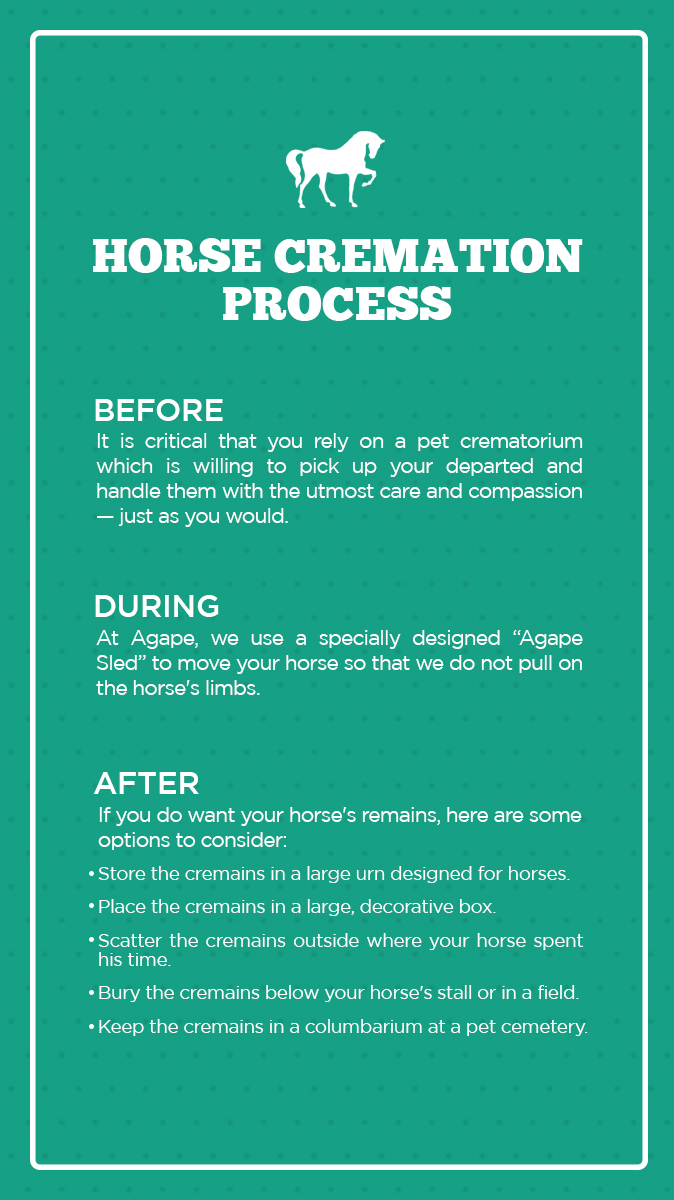
Horses can live 30 years or more in some cases, so the death of an equine friend can truly feel like you’ve lost a member of your family. Some pet crematoriums cannot handle horses because of their size, so it’s important to look for a cremation company can handle your equine pet.
- Before Horse Cremation
Since equine cremations are less common, you shouldn’t depend on your horse’s veterinarian or caretaker to have resources ready to help you. Do ask for recommendations if they are aware of pet crematoriums in your area who are accustomed to horses, and then do your own research.It is helpful to do this research ahead of time if you know your horse is approaching his last days or if you have made the difficult decision to have him euthanized so you’re ready when the time comes. Unlike with smaller pets, you likely don’t have the means to wrap your horse and store his body in a fridge or freezer while you decide what to do. You will need to act quickly, so it’s best if you already have a plan in place.Though the process is generally the same for a horse as it is with smaller animals, horses can present a bigger logistical challenge for owners because of their size. This is where it is critical that you rely on a horse crematorium which is willing to pick up your departed and handle them with the utmost care and compassion — just as you would. Make sure to ask the cremation company how they load/unload, transport and handle the horse overall. At Agape, we use a specially designed “Agape Sled” to move your horse so that we do not pull on the horse’s limbs.Most of the time, the crematorium will come pick up your departed horse from your home, veterinarian, equine hospital or boarding facility. If you have the means to transport your horse to the cremation facility yourself, you may be able to do this also. - During Horse Cremation
Horse cremations are generally private simply due to their size. This means your horse will be cremated on its own. You want to know your horse is being handled with respect, so be sure to choose a reputable and compassionate pet service.As with all cremations, the horse is placed in a cremation chamber, also known as a retort, where the organic matter is incinerated, and the remains are reduced down to dry dust and bone. The cremains are then refined into a smaller, more consistent substance. - After Horse Cremation
As with the cat or dog cremation process, you will receive your horse’s cremains promptly. Because of the size difference, the volume of cremains will be much larger with a horse. If you do not wish to receive your horse’s remains, ask the crematorium what they plan to do with them. At Agape, we offer to return your horse’s cremains to the earth. If you do want your horse’s remains, here are some options to consider:- Store the cremains in a large urn designed for horses
- Place the cremains in a large, decorative box
- Scatter the cremains outside where your horse spent his time
- Bury the cremains below your horse’s stall or in a field
- Keep the cremains in a columbarium at a pet cemetery
If your cremation service also offers decorative urns or boxes, consider choosing one of these and allowing the service to return your horse’s cremains to you already placed in the final receptacle. You may also want to pick out jewelry, artwork or some other way of keeping your horse’s memory close.
How Long Does the Pet Cremation Process Take?
Some people are curious about how long cremation actually takes. There is nothing morbid about wanting to know the details of the process. The answer depends primarily on the size of your pet.
Smaller animals like hamsters, mice, rabbits and birds are reduced to cremains in a short amount of time. The cat cremation process may take around half an hour or more. For larger animals, including large dogs and horses, it will take a matter of hours. The average amount of time it takes to cremate an animal is 45 minutes to two hours.
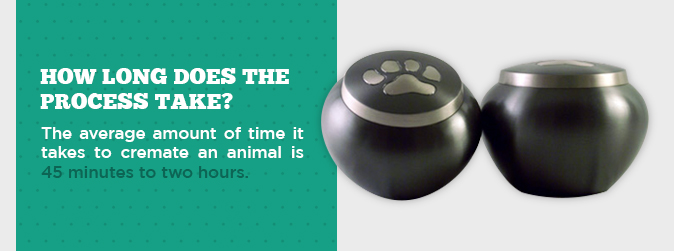
Once your pet has been cremated, you should receive their cremains within just a couple days. Ask your pet crematorium ahead of time how long it will be to save yourself any distress. If you are present for a private cremation, you should be able to take your pet’s cremains with you when you leave. Some people appreciate this since they feel more assured that the cremains they are given do indeed belong to their pet.
Can You Trust Pet Cremation?
A common concern that comes up in regards to pet cremation is whether a crematorium may not actually give you your pet’s cremains. After all, it is difficult to tell cremains apart, so what is to stop the crematorium from cutting corners and giving you another pet’s cremains or your pet’s mixed with others’?
Am I Really Getting My Pet Back?
It is natural to have this concern, and sadly, some pet crematoriums have contributed to the legitimacy of this concern.
Some cremation providers have been known to use the term “private cremation” when they actually mean partitioned cremation. With a partitioned cremation, your pet is placed alongside other pets and, while the remains are mostly kept separate, there is inevitably some commingling.
A private cremation is only truly private if no other pets are in the chamber. The cremator should attach a label to the outside of the chamber before the cremation begins. This label should stay with your pet’s remains at every stage of the process so there is no room for confusion. If a crematorium allows you to watch the process, this is a very good sign and can be reassuring if you’re worried about authenticity.
In addition to the legitimacy of private cremation, some pet cremation companies don’t have acceptable means of tracking a pet before, during and after their cremation.
If you’re concerned about the authenticity of your pet’s remains, you can do your due diligence to ensure that your crematorium truly cares about reuniting pet owners with their pet’s cremains and theirs alone. Ask them for a description of the process and how they ensure cremains do not get mixed or confused.
At Agape, we not only offer one pet, one chamber private cremation services, but we also utilize a thorough, dual-tracking system so that we’re able to confidently guarantee that your pet is tracked during the entire process.
Trust Agape Pet Services
Here at Agape Pet Services, we understand how difficult losing a pet can be. That’s why we offer comprehensive services for cremating and memorializing your pet. We can even provide pet loss resources to help guide you and your family through this difficult time.
If you have any questions about pet cremation, we are happy to answer them for you. We have cremation locations in North Carolina, Maryland and Virginia, partner with many reliable veterinary hospitals and offer a large pick-up radius for your convenience. Call us or contact us online today for cremation services & support.
